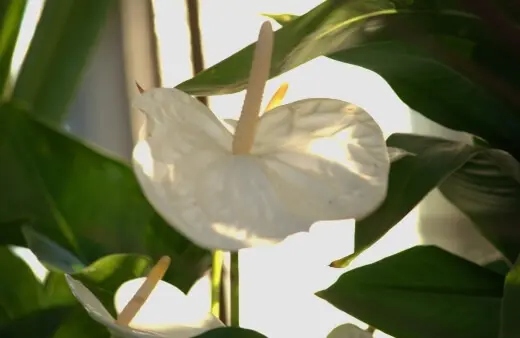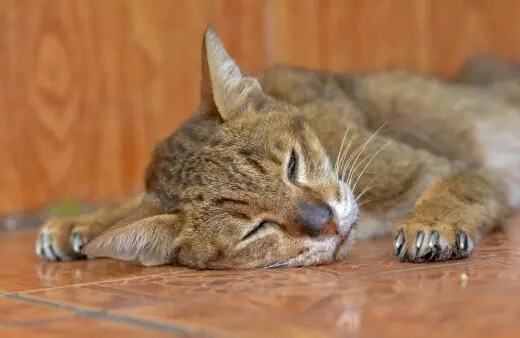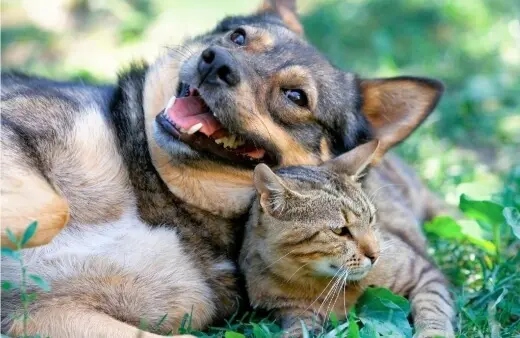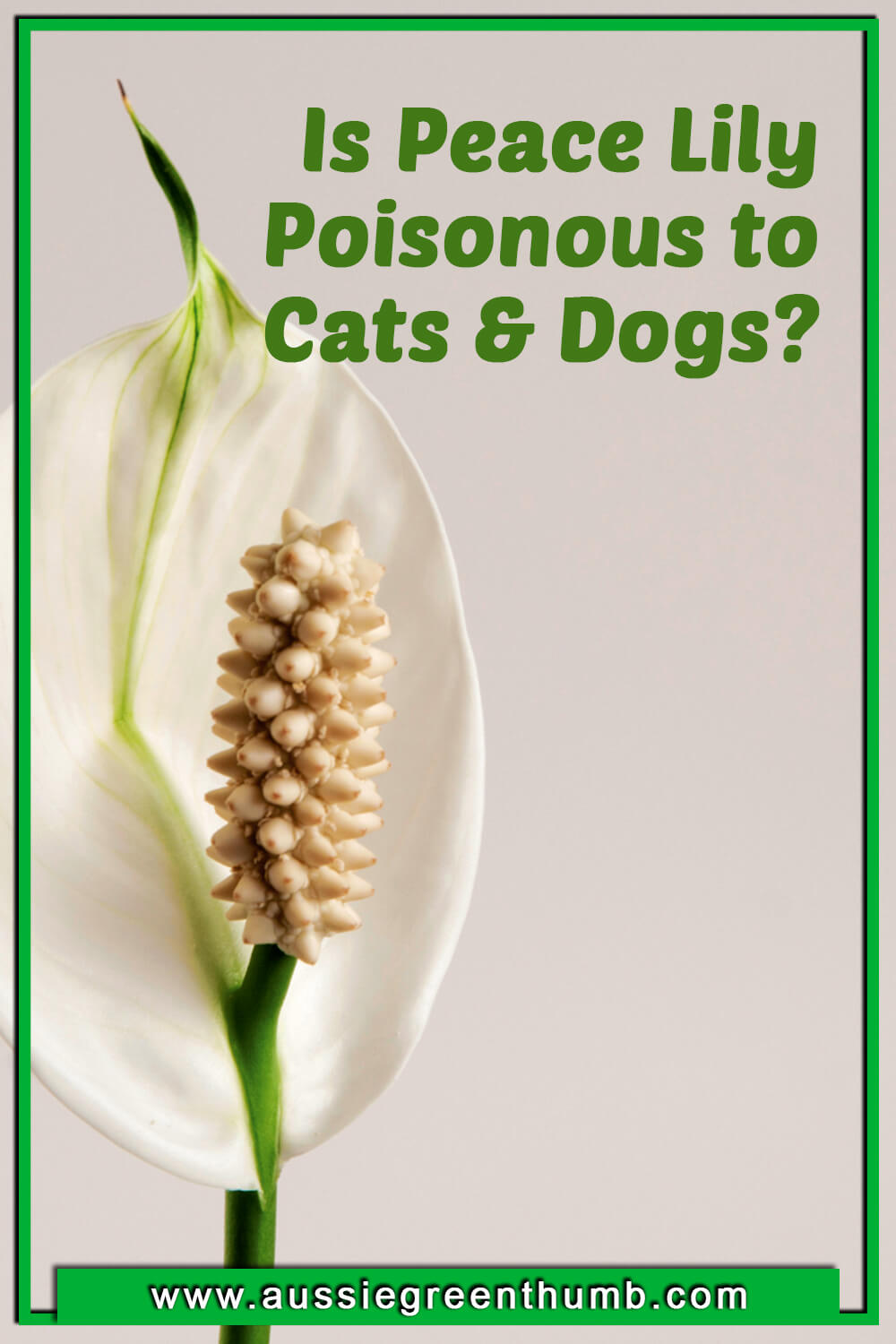The Peace lily or Spathiphyllum is a prized household plant that is accustomed to surviving most indoor and outdoor conditions. Adaptable for low light conditions and with gorgeous blooms, this flowering plant seems an ideal option for many.
Unfortunately, one major downfall to growing peace lily, especially when you have pets, is its mild toxicity. Let’s take a look at some considerations when it comes to growing a peace lily when you have cats and dogs around.
More...

Is Peace Lily Poisonous?
Peace lily plants contain calcium oxalate crystals which can be extremely harmful when you have pets. Now, these crystals are not only present in certain parts of the plant. These toxins are present in all parts, including roots, leaves, foliage and flowers.
This is why it can be dangerous for curious pets. These crystals are a powerful irritation toxin. Although only mildly toxic to humans, peace lily is extremely toxic for dogs and cats.
Is Peace Lily Toxic to Cats?

Cats are often be curious about plants and tend to play with, chew or bite the foliage of different household plants. Unfortunately, with the peace lily, you really have to be careful.
Should your cat or kitten happen to bite or chew on these leaves, the toxic crystals are released into their mouth and can cause severe painful injuries. This means peace lily is toxic to cats, even without them having to ingest the plant.
The level of peace lily toxicity is considered mild or moderate. Although, this depends on exposure to a toxin or how much has been ingested.
Signs that your cat may have been exposed to the peace lily toxin includes:
- Burning or irritation of the mouth and tongue
- Excessive vomiting
- Increased salivation
- Drooling
Is Peace Lily Toxic to Dogs?

Peace lily is toxic to dogs and therefore also poses a risk to every man’s best friend. The irritation toxin is equally as dangerous for dogs as it is for cats. While dogs may not be as likely to chew on leaves, which will also cause an inflammatory reaction in dogs – dogs may be likely to get a reaction when digging near the plant or from the pollen.
Certain dogs can get an oral irritation when exposed to the pollen of the peace lily. When this pollen is licked off fur or paws, it can cause severe oral inflammation along with other symptoms.
Common symptoms for dogs include:
- Excessive drooling
- Swollen mouth, muzzle or throat
- Vomiting
- Diarrhoea
While these symptoms would cause any pet parent to panic, it will not necessarily need you to take a trip to the vet. Often symptoms can be treated with home remedies. However, should the symptoms persist, you should seek out medical attention.
What to do if your pets have been exposed to Peace Lily toxin?
The first thing to do is not panic. It can be unnerving to notice the symptoms, but they can often be treated at home. For both cats and dogs, take care to remove any leaves or plant parts from your pet’s mouth.
Try to rinse out your pet’s mouth with water and encourage them to drink. Serving them some ice chips can also soothe the inflammation. Try to clean or wash your pets’ paws and fur to remove any other irritants that may still remain.


Get Your Free Guide:
Master Growing Australian Natives eBook
A Must Have Complete Guide for Every Australian Garden
Get Your Free Guide:
Master Growing Australian Natives eBook
A Must Have Complete Guide for Every Australian Garden
Do not try to induce vomiting. This can often have adverse effects. Should symptoms persist, call your local vet for advice as soon as possible.
Protecting Your Pets from Your Peace Lily
There are a few ways you can keep your curious pets away from your peace lily. Meaning you can still happily grow this indoor plant without having to worry about harming your four-legged friends.

Making Your Peace Lily Out of Reach for Dogs
The first and easiest step is to keep your peace lily out of reach. Although this won’t always work with cats who tend to climb, moving your peace lily onto a shelf or table will help to keep it away from your dog.
If growing in your garden, you can consider putting a little fence around the area where your peace lily is growing to keep your pooch away from that area altogether.
Here is our comprehensive guide on how to grow and care for Peace lilies.
You can also use obedience commands to train your dog to stay away from your peace lily plants. However, this may take a little extra effort.
Keeping Peace Lily Away from Cats
Cats are a little trickier to keep away from your plants, as they tend to have greater access to tables, shelves and cupboards. So, simply moving your peace lily may not be a viable solution.
However, cats don’t like strongly scented plants like citrus, mint, rosemary or lavender. As such, it’s a great option to simply pop your peace lily between some of these fragrant plants, and it should keep cats away from them.
Another option is to create a homemade spray to keep cats away. Simply mix some cayenne pepper, Tabasco sauce and water.
You can spray this around your peace lily or spray it at your cat every time they try to go near your peace lily. They won’t like it, but it will keep them away from harm.
Also read: Are Cassava Plants (Yuca) Poisonous for Cats and Dogs?

Keep Peace Lily Away from Cats and Dogs
Although the peace lily is toxic to your pets, it doesn’t mean you have to completely sacrifice growing this gorgeous plant. Do your best to keep your peace lily plants out of reach from your pets, or put in pre-emptive measures that will stop them from going near your peace lily.
In growing peace lilies, be sure to pay special attention to your pets so that you can pick up on symptoms when they occur. Again, it is important to not panic. Take care to clean up your pets and encourage them to drink lots of water to flush the toxins out of their system.
Published on April 30, 2023 by Maisie Blevins
Last Updated on January 28, 2025




